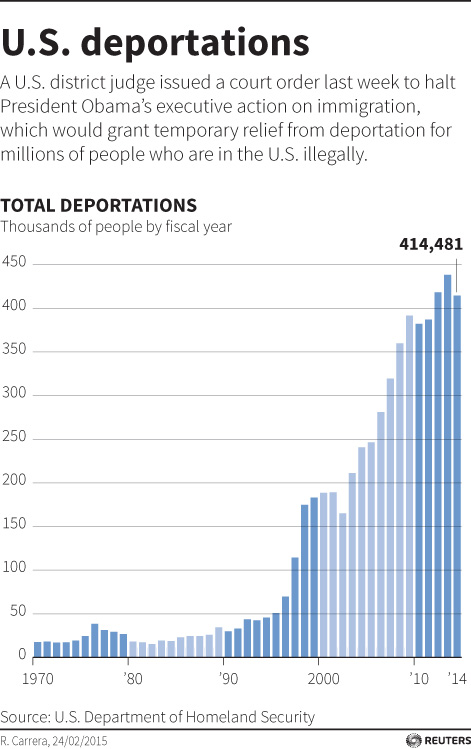Don't Blame Melania Trump for Breaking Immigration Laws: CHANGE THE DAMN LAWS
Instead of partisan schadenfreude, can we have a serious debate about policy for a change?

Politico reports that the wife of Republican presidential nominee Donald Trump very likely broke immigration laws when she first came to the United States in 1995. A model by trade back then, the future Melania Trump has given conflicting accounts of when she arrived in America from Slovenia, what sort of visa she entered on, and when she did various modeling gigs.
[Melania] Trump's tale of returning to Europe for periodic visa renewals is inconsistent with her holding an H-1B visa at all times she was living in New York — even if it was the lesser-known H-1B visa specifically designed for models — said multiple immigration attorneys and experts. An H-1B visa can be valid for three years and can be extended up to six years — sometimes longer — and would not require renewals in Europe every few months. If, as she has said, Trump came to New York in 1996 and obtained a green card in 2001, she likely would not have had to return to Europe even once to renew an H-1B.
Instead, Trump's description of her periodic renewals in Europe are more consistent with someone traveling on a B-1 Temporary Business Visitor or B-2 Tourist Visa, which typically last only up to six months and do not permit employment.
In typical electoral discourse, this is bad for the Trump squad for at least two reasons.
First, because one of billionaire developer's defining issues is immigration reform (read: building walls and forcing domestic employers to hire Americans first), this is a classic gotcha moment on the GOP nominee. In fact, given that Trump was assailed on the right by National Review and other conservatives for being insufficiently anti-immigrant (yes, hard to believe but true), this seeming outrage will likely swell the camp of #NeverTrump voters across the conventional political spectrum.
Second, coming after a string of recent and ongoing screw-ups and misstatements by the candidate and his campaign, the Melania revelations add more fodder to the idea that Trump is a joke candidate who is in no way ready for prime time (on the plus-side, nobody seems to care that one of Melania's early modeling jobs involved nude photos).
That cackling sound is Democrats laughing it up at The Donald's expense. And let's be fair: To the extent that he is building his appeal on xenophobia and closing off immigration at least temporarily, Trump deserves the equivalent of a pie in the face, just as he got when it turned out he hired mostly foreign workers to tidy up his Mar-a-lago club in Florida. You live by anti-immigrant sentiments, you die by anti-immigrant sentiments.
And yet this is exactly the sort of teachable moment that should not get lost in a flurry of partisan point-scoring; we need a serious and frank discussion about immigration policy, one that doesn't merely feed the fears and anxieties of Americans on the one hand or treat newcomers as an automatic constituency for the party that cynically welcomes immigrants after deporting record numbers of them.

Once the party of relatively open immigration, the Republicans have become staunch foes of anything resembling immigration reform (here's Ronald Reagan and George H.W. Bush circa 1980 debating which one of them loves illegal immigration more). With a few notable exceptions (such as Arizona Sen. Jeff Flake), they talk only in terms of punishing illegal immigrants that are already here and securing the border before even discussing any attempts to allow more legal immigration (which they're against anyway).
That's stupid policy for any number of reasons, not least of which is that "securing the border" is an expensive, fruitless task that simply forces all Americans to submit to increasingly invasive security measures while grinding down economic growth and increasing social tensions. Given that Republicans still pretend to be the party of smaller government, you'd think their members would understand that governments—which they routinely dismiss as incompetent and inefficient—generally don't control borders very well, except for totalitarian ones that are usually trying to keep people in a country.
By and large, migrants move for better work and life opportunities and they are willing to ignore procedures that get too much in the way of that goal. The better solution than building walls and checking papers all the time and fining employers and deporting people is to do minimal background checks for criminal behavior and communicable diseases and then let whomever wants to work and pay taxes come on in. Immigrants are already barred from receiving most forms of means-tested welfare and they commit crimes at lower rates than native-born residents and are a net-plus to the economy. We exclude them not simply at their loss but our peril: Look at places such as Japan, where an aging society is declining economically and numerically because it can't replenish itself.
For their part, the Democrats talk a better game about welcoming foreigners, but there's a grotesque, cynical edge to their recent embrace. During his first four years in office, President Obama removed 1.4 million immigrants. That compares to George W. Bush kicking out 2 million total in eight years. By the end of 2013, Obama's total was at 2.5 million, meaning he had deported more immigrants than all presidents up through the year 2000. Deportations still number over 400,000 a year. At the Democratic National Convention in Philadelphia, Hillary Clinton reached out to immigrants, saying she wouldn't break up families, without mentioning that she ran for Senate in New York with a very different attitude. Back then, she was proud to describe herself as "being 'adamantly opposed' to illegal immigration and talked about the need to sanction businesses that hire them, stop the flow across our southern border, and more." Nor was she a fan of increasing legal immigration.
A better immigration policy would be one that doesn't demonize people who want to move to America to work and live. A better immigration policy would be one that doesn't treat immigrants as pawns in partisan politics who can routinely supply votes to this party or that, regardless of how that party treats them.
Rather, a better immigration policy would welcome people and give them the ability to work, pay taxes, and become part of society. That policy has, by and large, served the United States exceptionally well during most of our history. Immigrant flows are generally self-regulating, so we don't have to worry about being swamped by everone in the world moving to the United States. There's a reason why the government itself acknowledges that Mexican immigration (legal and otherwise) peaked around 2007 or 2008—our economy tanked in a way that Mexico's was relatively more attractive to Mexicans. When jobs and opportunities dry up here, so does the flow of immigrants.
And the only way to greatly reduce illegal immigration is to let more people come in legally. No amount of fence-building (something Hillary Clinton has voted for in the past, by the way) or "boots on the ground" (Obama has increased border patrols to record levels) of our southern border will change that. Only a shift in policy can.


Show Comments (79)